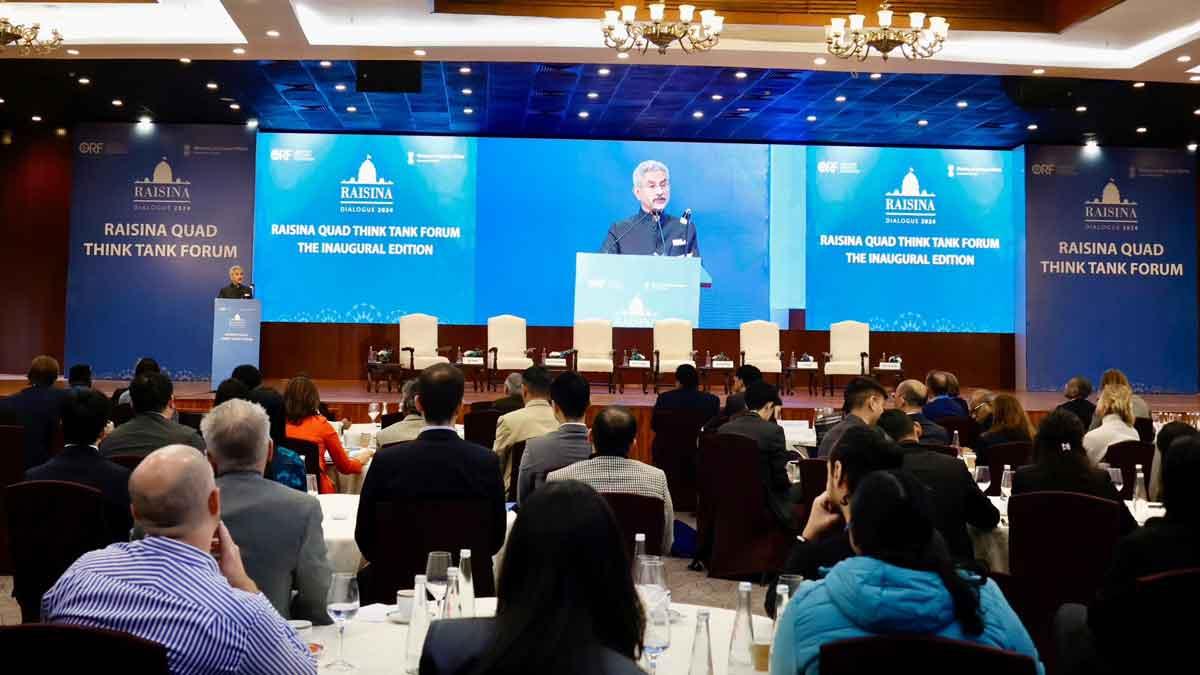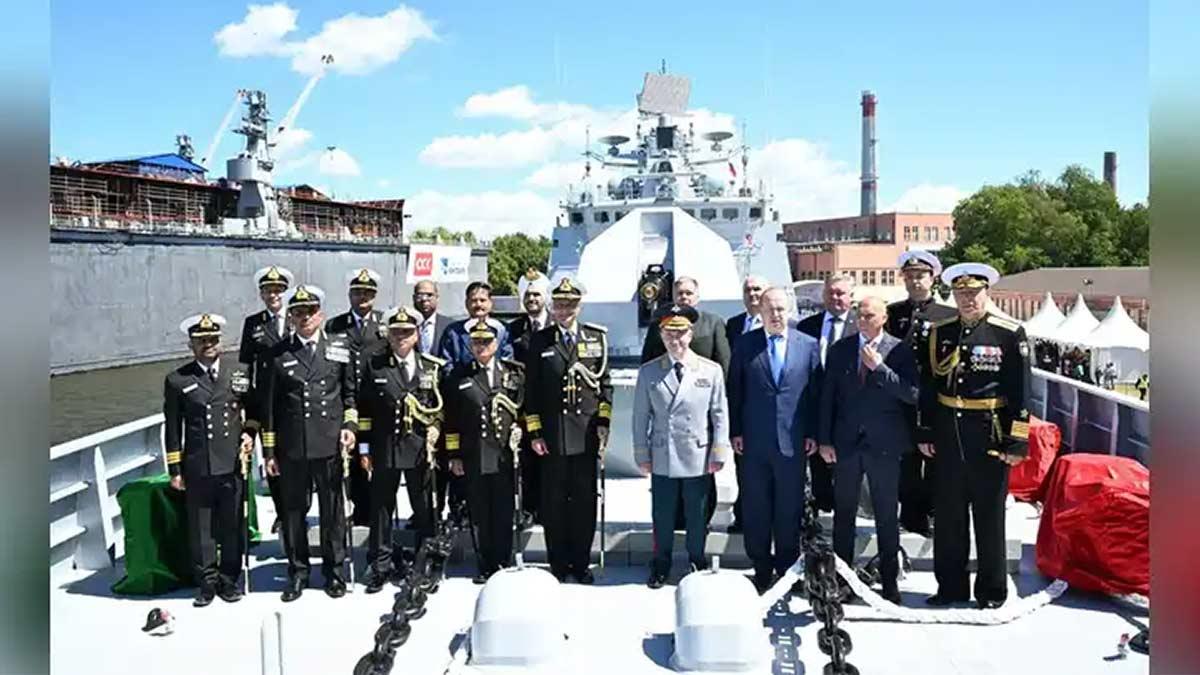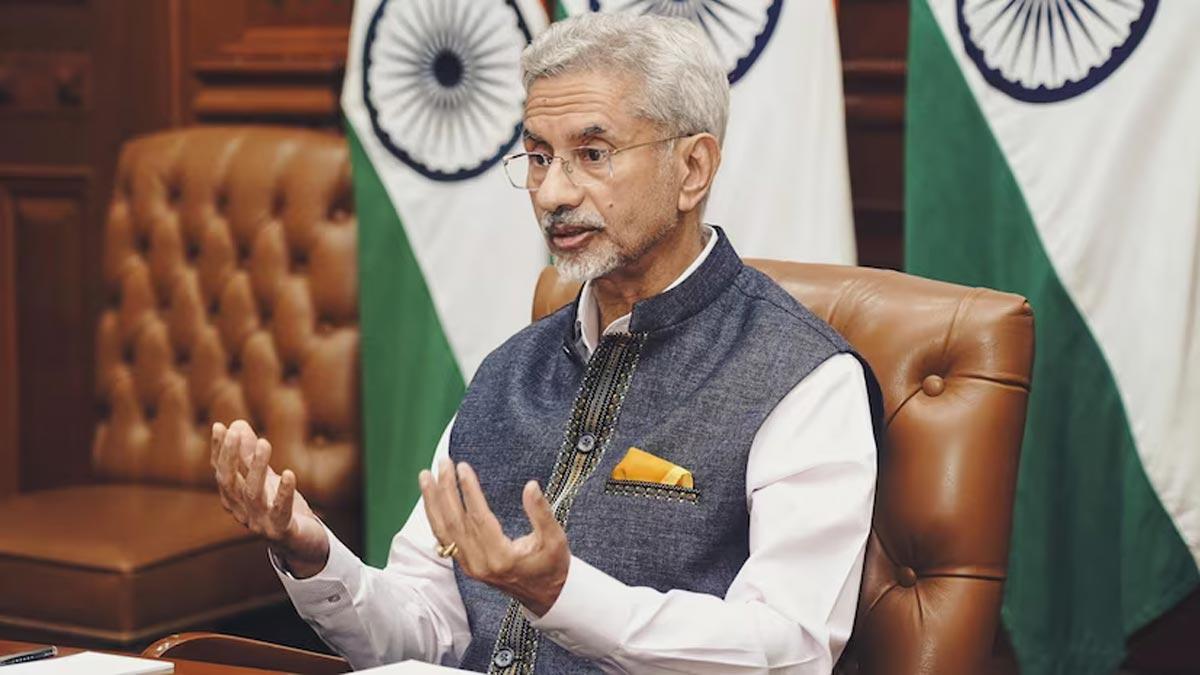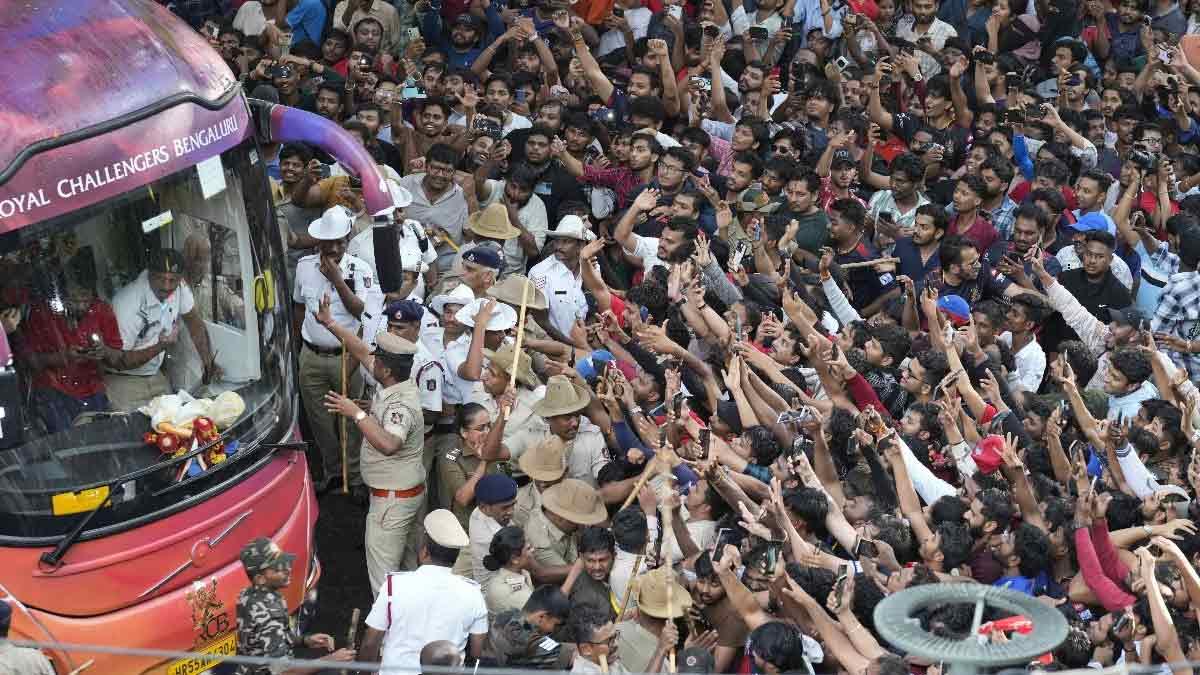External Affairs Minister S Jaishankar on Saturday emphasized the enduring significance of the Quad, a coalition comprising India, the US, Japan, and Australia, during his address at Raisina Quad think-tank forum. He underscored that the Quad's existence is not subject to external veto and affirmed its commitment to progress and global prosperity amidst growing concerns over China's assertiveness in the Indo-Pacific region.
Jaishankar portrayed the Quad as a dynamic and adaptable alliance, describing it as an "overhead light" that illuminates the path for constructive engagement in the Indo-Pacific. He stressed that the Quad has evolved into a substantial platform for the four vibrant democracies, united in their pursuit of an open and inclusive regional order.
Highlighting three key messages about the Quad, Jaishankar asserted its permanence, growth trajectory, and its role in contributing positively to regional and global affairs.
"One, the Quad is here to stay. Two, the Quad is here to grow. And three, the Quad is here to contribute," he said.
The forum, attended virtually by Australian Foreign Minister Penny Wong, Japanese Foreign Minister Yoko Kamikawa, and US Deputy Secretary of State Kurt Campbell, underscored the coalition's focus on the Indo-Pacific region, with China perceiving it as a containment strategy.
Jaishankar lauded the Quad's achievements, attributing its success to the collective efforts of the member nations, which have demonstrated unprecedented creativity, flexibility, and responsiveness in their collaboration.
Explaining the Quad's underlying principles, Jaishankar outlined its alignment with a multipolar world order, rejection of spheres of influence, and commitment to democratic values and collaborative decision-making.
"One, it reflects the growth of a multi-polar order. Two, it is a post-alliance and post-cold war thinking. Three, it is against spheres of influence. Four, it expresses the democratising of global space and a collaborative, not unilateral, approach. And five, it is a statement that in this day and age, others cannot have a veto on our choices," he said.
Jaishankar emphasized the Quad's role in addressing pressing regional challenges, including maritime security, infrastructure development, technology cooperation, and climate action. He highlighted two key initiatives under the Quad framework: the Indo-Pacific Maritime Domain Awareness (IPMDA) initiative and the Indo-Pacific Economic Framework (IPEF).
Asserting the centrality of ASEAN in the Indo-Pacific, Jaishankar dismissed concerns about dilution of ASEAN centrality, emphasizing the importance of the East Asia Summit process in regional architecture.
In their remarks, foreign ministers Wong, Kamikawa, and Deputy Secretary Campbell echoed Jaishankar's sentiments, emphasizing the Quad's commitment to a free and open Indo-Pacific, rule of law, and collaborative regional development. They stressed the Quad's role in offering alternatives and preserving options for regional stakeholders, rather than forcing choices between strategic competitors.
Read Also | US Legislators Advocate Strengthening Quad Inter-Parliamentary Relations
Read Also | India in driver seat of Quad, America in the next seat: US Ambassador Eric Garcetti


















